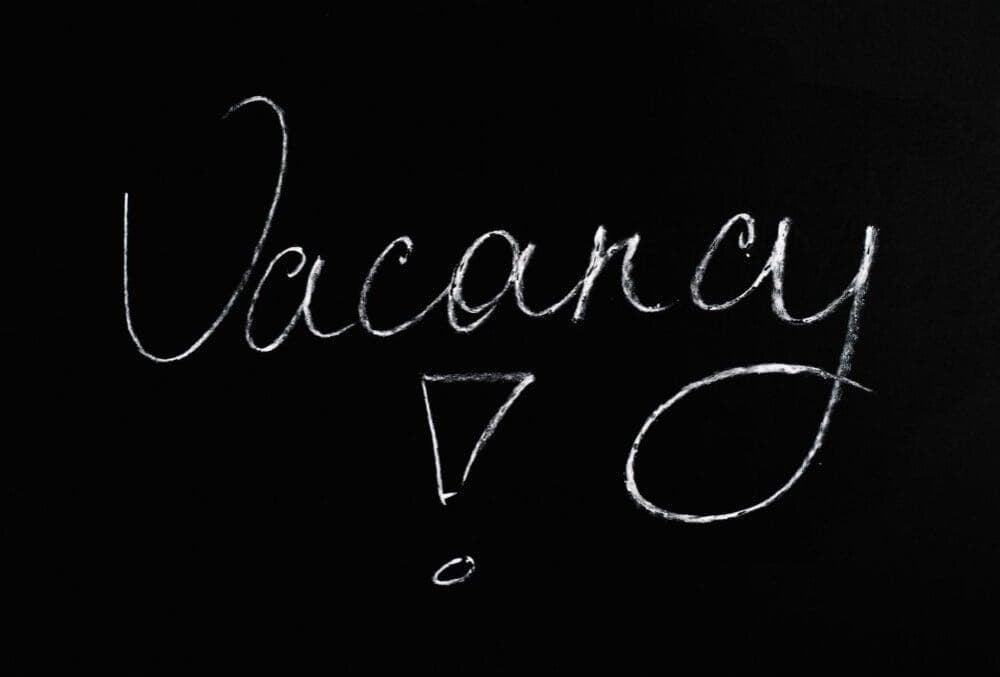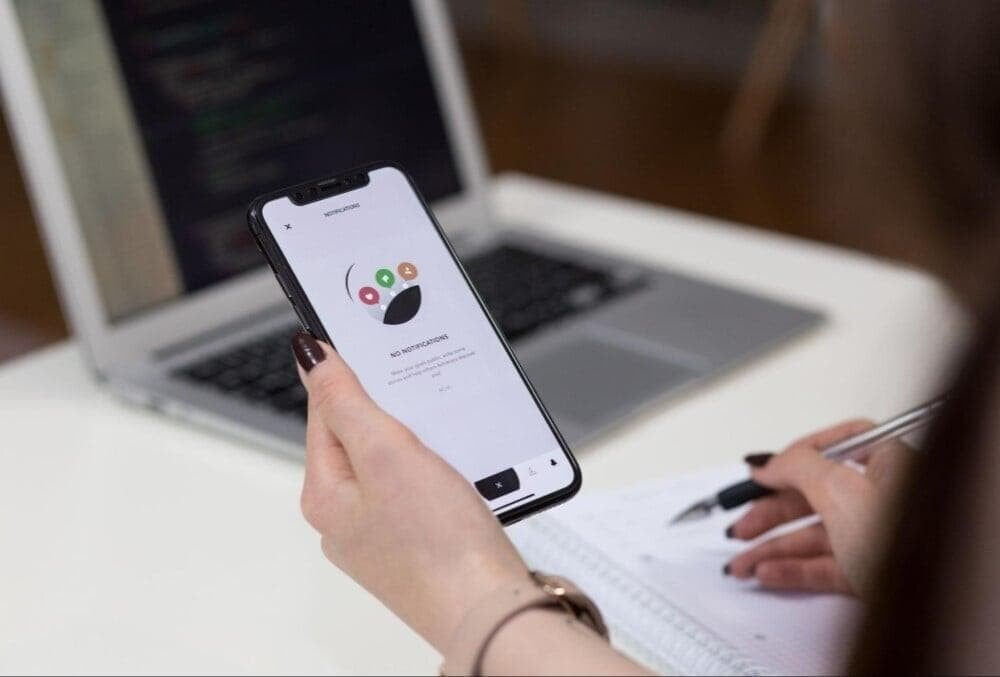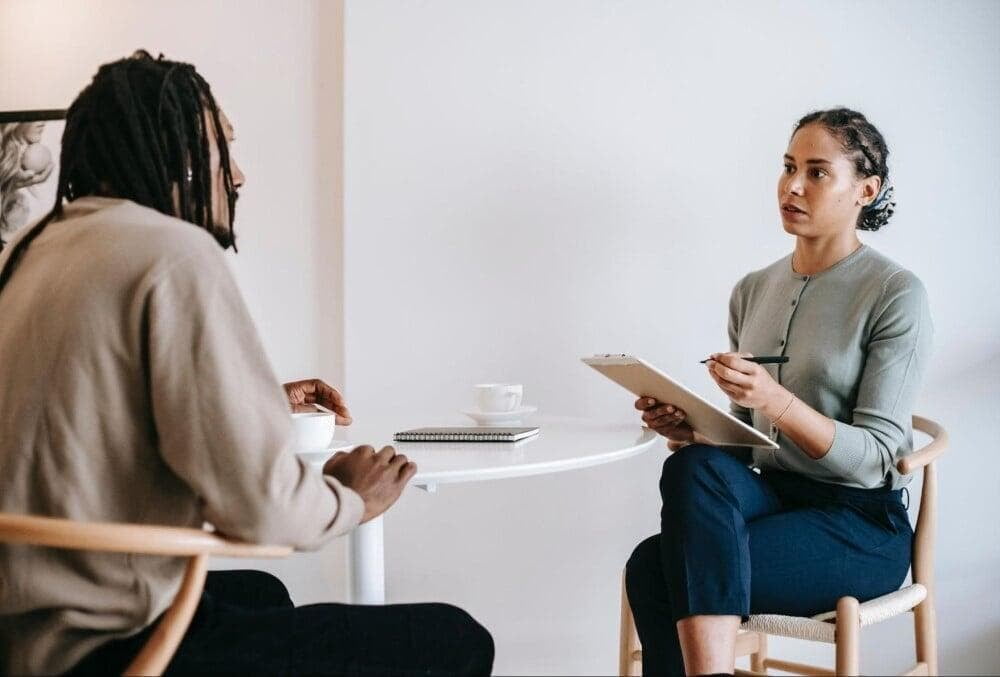
Grant Robson
Head of Employer Partnerships at Prosple
By putting in the effort to establish a thoughtful, thorough interview process now, you’ll be saving your organization time and money down the road.

Photo by Christina @ wocintechchat.com on Unsplash
Recruiters interviewing fresh grads face a unique set of challenges.
If you’re hiring for a more senior position, you’ll be able to quickly hone in on candidates with a proven track record of success. Many of these will likely come as recommendations from your professional network — meaning a candidate has been informally vetted by someone you trust before their CV even reaches your desk.
By the time you actually talk to an experienced candidate, you can feel reasonably confident that while they may or may not be the right fit for your organization, they are a competent professional who is capable of delivering results.
Graduate recruiting, though, is a whole different ballgame. Fresh grads often have minimal work history — if any — and whatever experience they do have is most likely not relevant to the job you’re hiring for.
They also likely have a limited understanding of the role they’re applying for. Sure, candidates for your graduate accounting job may have accounting degrees, but academic knowledge is usually a far cry from practical experience.
Applicants are also likely more motivated to get a job — any job — than to find a perfect fit. After all, without any professional background, they probably don’t even know what that perfect fit would be!
In other words, graduate recruiting involves rolling the dice. Unless you’re looking at a candidate who has completed a successful internship in your field, you’re staring into the unknown.
This means that you’ll want your screening process to be as robust as possible. Part of that can be automated — an initial CV review or testing, for example. But you’ll also need to conduct careful, thorough interviews to help suss out the wheat from the chaff.
But those careful, thorough interviews will take a lot of time. Per the 2022 AAGE Employer Survey, the average employer needs to assess 41 applicants in order to fill an open graduate position.
Now, you won’t have to interview all 41 candidates. You can rule out some before you get to that stage. The AAGE survey notes that only 47 per cent of applicants even make it to the first round of selection.
Still, if you’re running multiple rounds of interviews (and you should be), evaluating even a single graduate recruit could involve several hours of conversations, plus debriefing on the candidate with other members of your team. Multiply that by additional candidates and you may be looking at dozens or even hundreds of interview hours spent on each hiring cycle — for just one open position.
So it’s important to nail how you structure your interview process. Asking the right questions, following up, and pushing candidates out of their comfort zone can help you get a clearer picture of who you’re dealing with.
Plus, you may be able to rule out more candidates early on and eliminate hours of follow-up interviews, saving you and your team time and money.
We’ve created a short guide to building an efficient, effective interview process. Let’s dive in!
Refine everything before the interview
Refine everything before the interview
First off, your interviews should always be the last portion of your hiring funnel. If you’re smart about it, you can use everything that comes before the interview stage to get more value out of those precious interview hours. Here are some ideas on how.
Create a transparent job posting
Create a transparent job posting

Photo by Anna Tarazevich
When you create the job posting for each open graduate position you wish to fill, be as transparent as possible.
Your instinct may be to simply copy similar postings from competing companies. But the more clear and specific you can be here, the more you’ll put yourself in a position to attract the right candidates and turn away the wrong ones.
Highlight the skills, qualifications, and strengths you want to see in applicants, yes. Talk about what makes your company a great place to work.
But don’t shy away from the tough stuff, either. If the open role is a challenging one, be honest about that. Get specific — talk about what a successful applicant’s job experience may actually be like.
Some candidates will find this unappealing. Good! If they’re turned off by hearing about the challenges of the job, they’re probably not the right person to meet those challenges.
The more transparent you can be upfront, the more you’ll be turning your job posting itself into an effective first stage of your screening process.
Use testing when you can
Use testing when you can

Photo by freestocks on Unsplash
Testing is not a foolproof screening method. You can miss out on great candidates who may not test well (for one reason or another) and we’ve also heard anecdotal reports from employers who find that this generation of graduates is increasingly pushing back against testing as too impersonal.
But if you’re looking to limit the number of interviews you need to conduct, it can be an effective way to whittle down your overall applicant pool.
Per the AAGE report, most employers (64 per cent) use some form of aptitude testing. This usually means using a platform like HireVue or Sova Assessment to assess candidates based on things like skills, judgment, cognition, personality, and more.
There, you’ll typically be able to choose from a vast array of assessment options to come up with a custom testing protocol that fits your company’s specific needs. Once you’ve got that in place, it can scale to meet any volume of applicants.
(Note: to learn more about the most popular assessment platforms, as well as other key parts of the employer recruiting tech stack, check out our full guide here.)
How to conduct a great graduate job interview
How to conduct a great graduate job interview
Now that we’ve gotten the pre-interview stuff out of the way, let’s get to the meat of the matter. How do you conduct a great interview?
You’ll face two big problems here.
First, you’ll want to create as even a playing field as you can. As a human being, it’s only natural that you’ll personally connect with some candidates more than others. But as a recruiter, however, you’ll be doing your organization a disservice if you put your thumb on the scale in favour of candidates you get on with over those who may be a better fit for your team’s needs.
Second, you’ll want to be able to distinguish between someone who is a great candidate and a candidate who is merely a great interviewee. After all, the skills that can help an interviewee dazzle you during a conversation may not be the same skills a new hire would need to dazzle you with their job performance.
These can be tough nuts to crack, but we’ve got some thoughts on how to do interviews in a way that addresses both.
Establish a consistent interview process
Establish a consistent interview process

Photo by Amy Hirschi on Unsplash
If you want to create an interview process that is as objective as possible, think of consistency. Your interview questions, scoring, and overall flow should be your control variables — the same every time.
This means that before you begin interviewing candidates in the first place, you should sit down and create a thoughtful interview script. Think through a series of questions that you want to ask and write them down in the order you want to ask them. (We’ll talk more about what questions you should ask below.)
Then, when you’re ready to start interviewing, follow this script every time. Each interview will be a little different, of course (again, everybody connects more with some people than others) but you can maintain a consistent framework within that diversity of experience.
You may find yourself chatting about your shared university background with one interviewee while bonding with another over a mutual love of football and noticing awkward pauses with a third. That’s okay. The key is to do what you can to make each one feel like they can answer fully and honestly, and then ask the same questions in the same order.
Next, you’ll want to make sure that you’re scoring each candidate against a consistent rubric. Again, this is something you’ll want to have prepared before you begin interviewing anyone.
We suggest scoring each interviewee’s answers to individual questions on a scale of 1-4 or 1-5 (wider ranges may be necessary for some roles, but can be trickier to define and will create more opportunities for subjective interpretation). Write down what each score means to establish a baseline that different interviewers can share.
On a 1-4 scale, a score of 1 would mean that the candidate flubbed the question entirely. A 2 would mean that they gave a competent but flawed answer, while a 3 would represent a strong response that was nonetheless missing some key element. And — drumroll please — a 4 would mean an all-around outstanding answer.
Once you’ve got your scorecard established, take the time to meet as a group with everyone on your team who is conducting interviews. Go through the scorecard together to try and get everyone on the same page as much as possible.
Make sure that you fill out each candidate's interview scorecard the same way. This should be either during the interview or immediately thereafter (unless you recorded the interview).
Record the interview (if possible)
Record the interview (if possible)
If you’re conducting your interviews remotely (which, today, is often the case) then we highly suggest recording each interview you lead. This offers several benefits.
First, you’ll be free to go back and review a candidate’s answers after the fact. You can give the whole session a second run-through (if you’ve got the time) to make sure you really took the measure of what each person you interviewed had to say.
Plus, you’ll be able to stay more present during the actual interview. If you know you’re recording, you don’t have to spend as much time writing notes (you can do that later) and can give more of your attention to fully listening to a candidate and offering thoughtful, natural responses.
You’ll also be able to share the video of the interview with colleagues in order to get additional input. This could be useful later on when your hiring team is deciding who should progress to the second round of interviews.
One note: Always ask each person you interview for their permission to record. This is both the right thing to do and legally important given that some jurisdictions forbid making a recording unless all parties involved consent.
Avoid generic interview questions
Avoid generic interview questions

Photo by Alex Green
Next, let’s talk about the actual questions you’ll be asking. Here’s a big tip to start with: Don’t settle for only generic interview questions.
What do we mean? Well, we understand that since you’re interviewing candidates with little to no relevant work experience in their history, you can’t exactly do a deep dive on how they have handled role-specific problems in the past.
Faced with this situation, some recruiters find themselves reverting to asking grads to talk about broad, big-picture topics. These may include things like:
- Tell me about yourself?
- Why do you want to work here?
- What are your strengths?
- What are your weaknesses?
Now, there’s nothing wrong with asking any of these questions. But they’re also the same sort of questions that many other interviewers use. This means that grads will likely have faced similar questions before — and may even have prepared answers to some of them ahead of time.
In other words, when you build an interview only around predictable, generic themes, you’ll often get polished, scripted responses. That limits your ability to assess candidates on anything other than their ability to prepare well for an interview.
Think about this in terms of political campaigns. One candidate for elected office may be a thrilling campaigner while another could be a bit of a bore.
But the trouble is that once elected, the same skill set that helps the first candidate appeal to voters may not translate into effective governing. The uninspiring second candidate, meanwhile, may not be able to move hearts and minds with a single speech, but could prove far more capable of actually doing the job.
The same idea holds true for hiring — which means that you’ll want to avoid being dazzled by charisma. And to do that, you’ll need to push the interviewee enough to break through their superficial sheen.
Get the candidate out of their comfort zone
Get the candidate out of their comfort zone
So, time to get the candidate out of their comfort zone. To do this, you’ll need to remember that you’re leading the direction of the interview — not the candidate.
If you serve up nothing but softballs, you’re essentially putting whoever you’re interviewing in the driver’s seat. This might seem like a friendly approach to take, but it’s one that doesn’t do yourself or grads any favours.
Why? Obviously, you need to get a sense of an applicant’s mettle. Like we’ve discussed above, you don’t want to mistake flash for substance.
But an interview is a two-way process. Ideally, each applicant will walk away from your conversation with a clearer understanding of what working for your company would be like — and whether they are a good fit for the role. If your interview is too easy, you may be putting an applicant in a situation where they will end up saying yes to a job offer they aren’t ready to actually tackle.
That’s a lose-lose scenario for everyone involved.
So you want to strike a balance. Do your best to make sure that each candidate feels comfortable at the beginning of the interview (depending on your own people skills and how well you mesh with a given interviewee, your mileage here may vary).
You don’t want an otherwise excellent candidate to stumble out of the gate just because they’re nervous.
But once you’ve got the interview moving in a comfortable rhythm, it’s time to shake things up. Start asking the unexpected, unpredictable questions that will show you the person beneath the polish.
When the going gets tough, how will this applicant react?
Ask the follow-up
Ask the follow-up

Photo by Sora Shimazaki
One great way to take a candidate out of their comfort zone is by asking follow-up questions — lots of them. Rather than accepting an initial answer at face value and moving on, you’ll want to dig in deeper and watch what happens.
Doing this can be an incredibly useful tool. Say, for example, after a couple of easy questions to get the candidate warmed up, you ask another that seems generic on the surface.
“Tell me about a time that you failed?” you say.
The person you’re interviewing responds with a thoughtful story about how they overslept and didn’t show up on time for a school rugby match they were supposed to play in. They acknowledge that they let their teammates down.
Good enough answer, right?
Well, sure. But you can learn more by going further. “How did you address this issue with the team after the match?” you could ask. Or, “What happened the next time you failed at something?”
Asking these follow-ups will give you a sense of how this candidate handles taking responsibility for their actions or learns from mistakes. More importantly, you’ll get to see them thinking on their feet.
Follow-ups can also help you gauge the depth of an interviewee’s understanding or accomplishment. If you’re talking to a candidate who has just told you about how they felt like they learned a lot by interning with the technology consulting team for, say, Accenture, that gives you a great opening to ask for more details.
“Tell me about a specific project you worked on and what you contributed?” you could say. “What was the biggest problem you faced and how did you work to overcome it?”
You don’t have to stop there, either. When they tell you about the problem, follow up again. “Why did you take that specific approach?” you can ask. “What were the positives and negatives? Was there an alternative that would have worked better? Did you test different options?”
Now, the beauty of all this is that you don’t have to know what you’re talking about here. Your expertise may lie far from technology consulting — but that’s not just okay, it may even be beneficial.
What you want to assess is how well the candidate can explain their experience. If you don’t understand a concept, ask them to try again. If you still can’t wrap your head around it, the problem may be that the candidate themself doesn’t have a strong enough grasp on what they’re talking about to clearly communicate it to another person.
The more you push, the more insight you’ll gain. You can (and should) ask your follow-ups in a friendly, engaging manner, but don’t be afraid to keep going until you’re either satisfied with the interviewee’s answer or have watched the wheels come off.
Whatever happens, you’ve learned something important.
Again, we want to emphasise that consistency is essential. Make sure you ask lots of follow-up questions to everyone you interview. Don’t fall into the trap of going easy on some and pushing harder with others or you’ll be missing out on critical information.
Try alternative question types
Try alternative question types
Another great way to explore how a candidate thinks on their feet is to use work sample tests or case studies. This can take the interview out of the realm of past accomplishments or airy hypotheticals and give whoever you’re interviewing a concrete problem to solve.
A work sample test is simple: give the interviewee an actual work task that they need to complete. Depending on the position, this could be anything from scheduling a series of meetings to coding to creating client communications — any duty that would normally be performed by someone holding the role that you’re interviewing for.
Depending on how much time you have, you can do a work sample test as part of your live interview. But you can also send it to the candidate beforehand, give them a certain amount of time to complete it, and then use a portion of your interview to debrief on the exercise.
You can also try a case study. Focused on a scenario, rather than a specific task, a good case study is essentially impossible for a candidate to prepare for because it is unique.
Again, think about a common situation that goes along with the job you’re looking to fill — a client crisis, an HR conundrum, whatever. Come up with a specific example of that situation, give the candidate all the details they need, and then ask them how they would handle it.
Whether you’re using a work sample test, a case study, or both, don’t forget your follow-up questions here, either. Many a candidate may offer an impressive initial answer that falls apart on further examination.
This may or may not be disqualifying, but it is definitely useful information that you’ll want to know.
Look out for the rest of your interview team
Look out for the rest of your interview team

Photo by Sebastian Herrmann on Unsplash
One reason why it’s so important for you to try and break through an applicant’s polish? Because you’re probably not the only one who will interview them.
If you’re conducting an initial interview, you’ll want to be thoughtful towards whoever is leading the second-round interview. After all, if you settle for a brief chat, don’t ask any follow-up questions, and then pass a candidate along to the next interviewer, you could be sending them someone who is clearly unfit for the role — wasting time they could have spent speaking with more qualified applicants.
So make the extra effort. If you and everyone else on your hiring team take this attitude, you’ll save each other many hours of work in the long run.
After the interview, what’s next?
After the interview, what’s next?
Once you’ve completed the interview, you’ll want to finish your notes. If you’ve got a recording, include that link in your doc so that team members have the option to watch as well.
We suggest that you also make a firm yes or no recommendation on each candidate you interview. This doesn’t mean that every person you give a thumbs up to is a must-hire, but again, you’re wanting to look out for the next interviewer here.
If you send someone along to the next round, make sure you could actually see them in the role. If you also have concerns or question marks, that’s okay! Highlight those questions in your notes so that the next interview can explore further.
On the other hand, if you feel confident that a candidate is not the right fit, say so. You’re not helping anyone by stringing them along.
A great interview process is essential to good hiring
A great interview process is essential to good hiring

Photo by Clem Onojeghuo on Unsplash
To wrap up, let’s run through the basics one more time. Make sure that you build an effective top of your hiring funnel starting with a transparent job listing in order to weed out candidates who are clearly a poor fit.
Come up with a standardized interview system with a clear, simple scoring rubric to create a level playing field for everyone you interview. Once you start interviewing, rely heavily on follow-up questions to push past an applicant’s prepared statements and give you a sense of how they conduct themselves when the pressure’s on.
Remember, you can do this in a friendly, appealing way, but don’t let up. The deeper you dig, the more you’ll get to meet the real person behind the polish. Don’t be afraid to think outside the box with a work sample test or a case study, either.
By putting in the effort to establish a thoughtful, thorough interview process now, you’ll be saving your organization time and money down the road.
Ready to interview some great grads? Become a Prosple partner!
Ready to interview some great grads? Become a Prosple partner!
Prosple makes it simple to connect with outstanding fresh grads.
- Share your job listing with millions of students
- Give prospects an inside look at what makes your firm special
- Optimize your marketing by tracking results from start to finish
- Pitch candidates directly at our exclusive online Super Fairs
To learn more, schedule a chat with one of our friendly consultants today!

